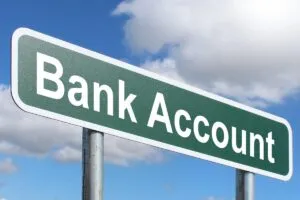Business loans are financial instruments designed to give businesses a lump-sum of capital, which is then repaid with interest over time. These loans are available from online lenders, credit unions or other alternative sources of financing. These loans are a vital tool that businesses can use to finance expansions, buy inventory, hire employees, or manage their cash flow. This article will provide you with information on the most common business loans that are available to your business.
Common types of business loans
As a businessman, you may be interested in the following types of loans:
1. Term Loans
Term loans are a way to borrow a lump-sum of money and pay it back over a period, usually between one and five years. Term loans can be used for long-term investment, like purchasing equipment or expanding your business. They are often fixed-rate loans with regular repayment schedules. This makes budgeting for business owners easier.
2. Lines of Credit
A line of credit is more like a conventional loan than a credit card. Businesses can borrow up to a certain credit limit. The interest is charged only on the amount of the loan, and the funds are available once the debt has been repaid. Lines of credit can be flexible and used for a variety of purposes including managing cash flow or covering unexpected expenses.
3. SBA Loans
Small Business Administration (SBA), loans are partly guaranteed by the federal Government, which makes them more accessible to small businesses and less risky for lenders. These loans have competitive interest rates, longer repayment terms and are ideal for businesses and startups with little collateral. SBA loans are available for many purposes including the purchase of real estate, inventory, equipment or other assets. They can also be used to refinance existing debt.
4. Equipment Financing
Equipment financing is easier to qualify for because the collateral used for the loan is the equipment. This loan type is ideal for businesses who rely on specialized equipment but do not want to tie up their working capital.
5. Invoice Financing
Businesses can borrow money based on unpaid invoices, which is also called accounts receivable finance. Businesses can borrow money upfront instead of waiting on customers to pay. The lender will receive repayment plus fees once the invoices have been paid. Invoice financing can be useful for businesses that have long payment cycles, or cash flow fluctuations.
What Business Loans Are Right for Your Business?
Consider your business’s goals, financial status, and borrowing requirements when choosing the right loan. Here are some tips on how to choose the best business loan for your company:
1. What Are Your Financial Needs?
Start by determining why you need a loan and the amount of capital required. You should consider factors like why you require the loan, the amount you need and the speed of repayment.
READ THIS: Tips on How to Get A Moniepoint Point Of Sale In Nigeria
Check Your Creditworthiness
When evaluating your loan request, lenders will consider your credit history and your financial stability. Review your credit history, correct any errors, and improve your score if needed.
3. Gather Documentation
Prepare the necessary documentation to support your loan request, including financial statements, tax return, business plans and collateral information. Your chances of getting approved will increase if you have organized, current records.
4. Consult with Professionals
Asking for advice from business mentors, financial advisors or accountants can help you choose the best loan to suit your needs. They can guide you through the lending process, and help you avoid common pitfalls.
FAQs
What is the best business loan type?
Your financial and business needs will determine the best type of loan for your business. When choosing the best loan for your company, consider factors like the purpose of loan, repayment terms and interest rates as well as eligibility requirements.
How do I qualify for an business loan?
Lenders will consider your credit score, revenue, cash flow and collateral when determining whether you qualify for a loan. Maintaining a good credit rating, showing steady revenue and presenting a strong business case will increase your chances of getting approved.
Is it difficult to obtain business loans?
It depends on a number of factors including your creditworthiness and business stability as well as the requirements of the lender. There are many options for business loans, even if some may be difficult to qualify for.
What is the difference between an unsecured business loan and line of credit for a small business?
A business loan is a lump-sum capital repayment over a period of time, with interest. However, a credit line offers a credit limit which can be accessed as required. Lines of credit are flexible and can be used to cover ongoing expenses. Business loans, on the other hand, are usually for specific purposes.
Can I still get a loan for my business if I have bad credit?
It is possible to get financing even if you have bad credit. Consider alternative lenders, secured loans that need collateral or improve your credit before applying for a business loan.
The conclusion of the article is:
The best business loans will be those that can take your business to the top. Select the loan that best suits your business and makes your business fly.




